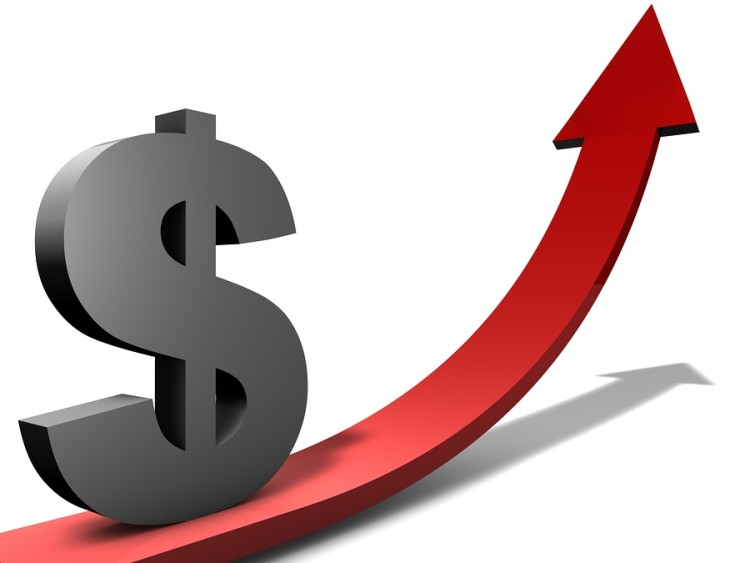Bloomberg Business: Oil Slump as Dollar Surges Seen Improving Economy in Global Poll

Oil Slump as Dollar Surges Seen Improving Economy in Global Poll
Copyright 2015 Bloomberg.
Simon Kennedy
(For more stories on the Bloomberg Global Poll, click TOP POLL and click DAVOS for more on the World Economic Forum.)
(Bloomberg) — The plummeting price of oil and surging U.S. dollar are increasing growth throughout the world, according to the Bloomberg Global Poll.
Three-quarters of responding investors, analysts and traders who are Bloomberg subscribers said oil’s 55 percent plunge since June will spur worldwide expansion. Fifty-eight percent said gains in the dollar against currencies such as the the euro and yen will help more than hurt.
The encouraging perception of two of the most important trends shaping financial markets helps allay concern that cheaper crude reflects a slowing world economy that could be pinched if the greenback keeps rising. Both are likely to be the subject of debate at the World Economic Forum’s annual meetings this week in Davos, Switzerland.
“Practically every industry is a consumer of energy, and the decline in oil has seen the price of a key input decline,” said Graham Davidson, a poll participant and currency trader at National Australia Bank Ltd. in London. “All else equal, it improves corporate profitability, improves consumers’ spending power and will ultimately encourage productive investment.”
Underscoring that view, 72 percent said the oil slide reflects increased supply rather than slumping demand. Even as oil posted its biggest annual decline since 2008, the Organization of Petroleum Exporting Countries resisted calls to cut output and the U.S. pumped at the fastest rate in more than three decades.
Energy Boost
Lower energy bills are freeing up cash for consumers and companies to spend more on other goods and services, according to analysts such as Nariman Behravesh, the chief economist at IHS Inc. He estimates the lift to international expansion could be as much as 0.5 percentage points.
“There’s a lot of worries that somehow oil’s plunge is hurting stocks and rattling investors, but in terms of the economic outlook there’s no question it’s a net positive,” said Behravesh, a Davos delegate.
That hasn’t stopped some investors from saying the speed of the decline reflects weakness in the world economy and may deepen the risk of deflation in Europe. The MSCI World Index of stocks has lost about 4 percent since oil began its drop in June as energy producers slashed investment. U.S. retail sales slumped in December, showing consumers may be pocketing their savings.
Reflecting such pessimism, 19 percent in the poll said the oil slump is curbing growth. One-third said U.S. shale-drilling companies will scale back output quickly enough for OPEC to avoid having to lower its production target this year, while about half said the organization will be forced to act before the end of 2015.
OPEC Forecasts
Of those who expected the cartel to act, 58 percent said that was most likely to happen in the second half of the year, with 34 percent predicting a shift before the end of June.
The poll of 481 Bloomberg subscribers was conducted Jan. 14-15 by Selzer & Co., a Des Moines, Iowa-based firm. It has a margin of error of plus or minus 4.5 percentage points.
Turning to the dollar, a majority said its gain will help worldwide growth, reflecting the argument that it will contain inflation in the U.S. and lift Japan and the euro area, which will benefit from weaker currencies.
With the U.S. Federal Reserve preparing to raise interest rates this year and the world’s largest economy picking up speed, the greenback last year rose against all 16 of its major rivals, according to data compiled by Bloomberg. Goldman Sachs Group Inc. and ABN Amro Bank NV are among those predicting the dollar will rise to parity with the euro by the end of 2016.
Import Demand
“Since U.S. domestic demand is growing more strongly than in most of the rest of the world, a rise in the dollar should encourage stronger demand for imported goods and aid growth in the rest of the world,” said Robert Sinche, a strategist at Amherst Pierpont Securities LLC in Stamford, Connecticut, who was among those surveyed.
As with oil, not everyone welcomes the stronger dollar. Thirty percent said it will prove mostly a negative. The Bank for International Settlements has warned that it threatens developing-nation governments and companies, which will have to pay more to service U.S. currency loans and bonds.
“The rising dollar is a difficulty for emerging markets due to their dollar-denominated debt,” said Davidson of National Australia Bank.
To contact the reporter on this story: Simon Kennedy in Paris at skennedy4@bloomberg.net To contact the editors responsible for this story: David Papadopoulos at papadopoulos@bloomberg.net James Hertling, Brendan Walsh







No Comment